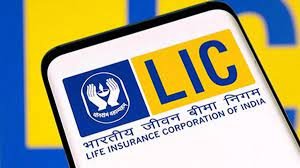LIC Granted Extension Till 2032 to Achieve 25% Public Shareholding
The Insurance Regulatory and Development Authority of India (IRDAI) has recently granted an extension to Life Insurance Corporation of India (LIC) to reach the mandated 25% public shareholding target. This move extends the timeline for LIC’s compliance with the regulatory requirement from the earlier deadline of 2020 to the new deadline set for 2032. The decision comes as a significant relief for LIC, allowing the insurance giant more time to restructure its shareholding pattern and facilitate a smoother transition towards increased public participation in its ownership.
The IRDAI’s decision to extend the deadline aligns with the objective of promoting greater transparency, accountability, and market discipline within the insurance sector. The requirement for increased public shareholding aims to broaden the ownership base, reduce concentrated control, and enhance corporate governance within LIC.

Why this News is Important:
Significance of IRDAI’s Decision
The IRDAI’s extension of the deadline for LIC to achieve 25% public shareholding holds paramount importance. It addresses concerns regarding LIC’s compliance with regulatory norms, providing the company with an extended timeframe to adjust its ownership structure without market instability.
Impact on LIC’s Operations
This extension significantly impacts LIC’s strategic planning, allowing the company to restructure its shareholding pattern methodically. The revised timeline enables LIC to maintain its operational efficiency while gradually increasing public participation.
Historical Context:
The mandate for increased public shareholding stems from the Securities and Exchange Board of India (SEBI) guidelines issued in 2014, which aimed to enhance transparency and corporate governance in listed companies. This directive required all listed entities, including public sector enterprises like LIC, to ensure a minimum public shareholding of 25%.
Key Takeaways:
| Serial Number | Key Takeaway |
|---|---|
| 1. | IRDAI extends LIC’s deadline to achieve 25% public shareholding until 2032. |
| 2. | Objective: Promoting transparency, accountability, and market discipline within the insurance sector. |
| 3. | Importance: Facilitating LIC’s strategic restructuring without compromising operational efficiency. |
| 4. | Impact: Potential increase in retail investor participation and liquidity in Indian capital markets. |
| 5. | Historical Context: SEBI’s 2014 guidelines mandated a 25% minimum public shareholding for listed entities. |
Important FAQs for Students from this News
What is the significance of LIC’s extension till 2032 for achieving 25% public shareholding?
The extension allows LIC more time to restructure its ownership pattern, ensuring compliance with regulatory norms without affecting operational efficiency.
How does the IRDAI’s decision impact LIC’s market presence?
The decision promotes market stability by enabling LIC to gradually increase public participation without causing market disruptions.
What are the objectives behind the requirement for increased public shareholding in LIC?
The mandate aims to enhance transparency, accountability, and market discipline within the insurance sector.
What was the initial deadline set for LIC to achieve 25% public shareholding?
The initial deadline for LIC’s compliance was 2020, which has now been extended to 2032 by IRDAI.
How might the extension affect retail investor engagement in LIC?
The extension could potentially encourage increased retail investor participation, fostering liquidity in Indian capital markets.
Some Important Current Affairs Links













